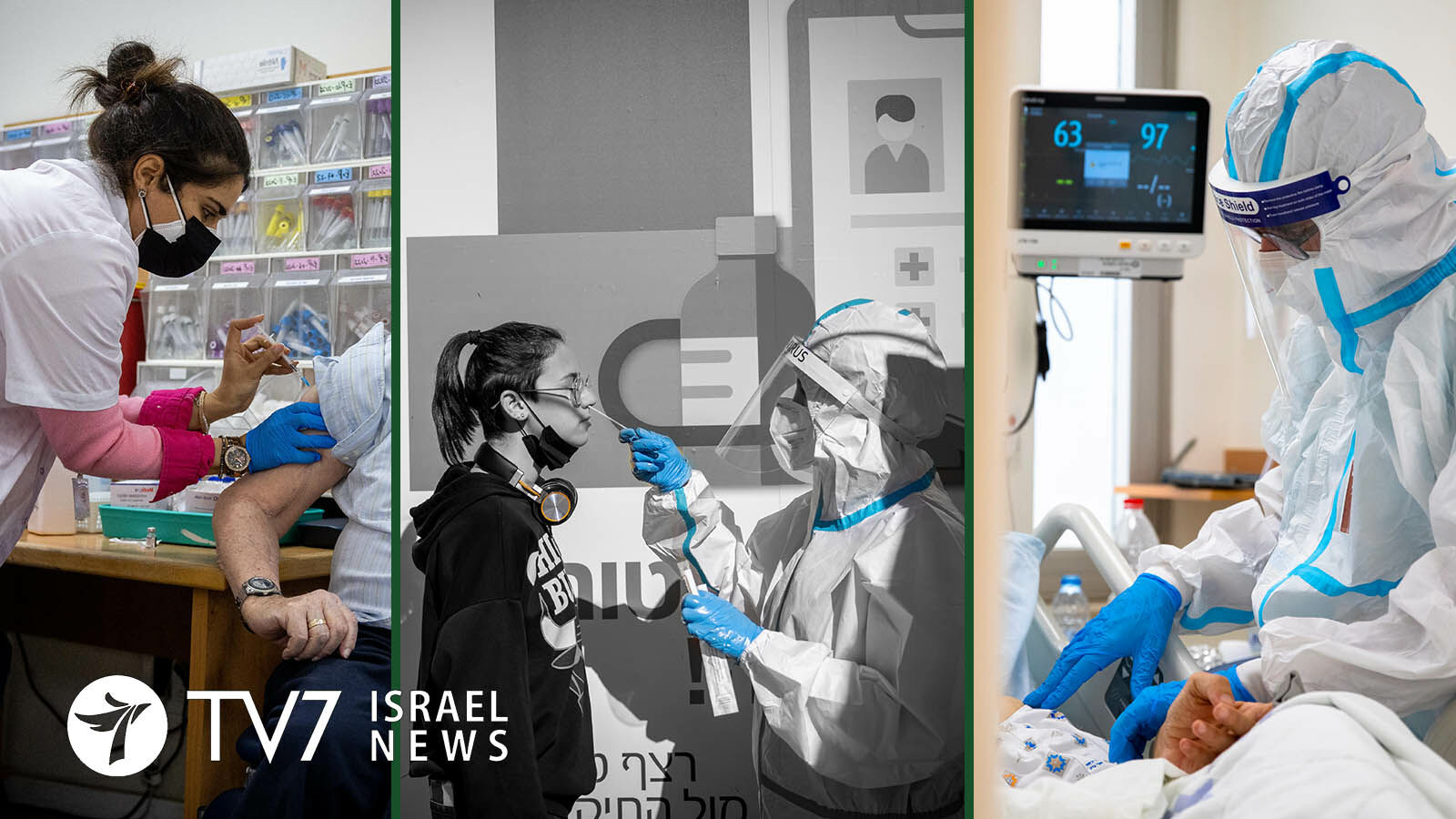The latest data from the Ministry of Health supports increasing evidence worldwide that Omicron is causing milder illness than previous variants of the coronavirus, even as the country is challenged by its highest number of daily infections.
By Erin Viner
4,032 new cases have been diagnosed since midnight last night, while yesterday’s confirmation of 16,830 new cases reflected a record high in Israel since the start of the pandemic – with a daily increase of 32 more people falling severely ill.
143 patients are currently listed in serious condition, with another 56 who are critical.
Over the past week, the number of verified patients rose to 72,991 – representing a 269% surge over last week. In a 100% rise, 12 Israelis died over the past 7 days, including two 6-year-olds.
This, as compared with the peak of the Delta strain, when the number of infected Israelis topped 11,000, with the number of those falling severely ill increasing daily by around 100 with 1,300 people hospitalized.
“Our initial data, which is not yet entirely accurate, points to seven to eight people hospitalized for 1,000 infected, two of whom will fall severely ill or worse,” Health Ministry Director of Public Health Sharon Alroy-Preis told Army Radio. She underscored that, “this is a significant change from Delta which saw far more – at least 10 severely ill for every 1,000 infections.”
Israel has confirmed around 1, 458,096 total infections and the deaths of 8,259 people since outbreak of COVID-19.
The World Health Organization said on Tuesday that evidence is mounting that Omicron causing milder symptoms than previous variants, resulting in a “decoupling” in some areas between the spike in infections with low rates of fatality.
Health authorities nevertheless remain concerned that despite the apparent less harmful aspect of Omicron, its rapid rate of contagion could overload medical facilities.
Jerusalem’s Hadassah Medical Center opened its second coronavirus ward yesterday amid the fast pace of admissions.
“We get the impression that Omicron causes a disease that is not as severe as the previous variants. However, there is still a high level of uncertainty because we need perspective, we need to see after a period of time how many severe cases we accumulate,” said Hadassah’s Head of Medicine Dr. Alon Hershko.
Similar to the Delta wave, unvaccinated patients largely suffered more severe COVID-19 symptoms than those who have been jabbed, and represent the majority of hospital admissions, noted Dr. Hershko.
Testing sites struggling to keep up with the surge have prioritized high risk groups, and rely on younger, vaccinated populations to do home tests if exposed to a carrier.
All immune-compromised citizens and those aged 60 and over have been lining up to be administered a 4th dose of the Pfizer Inc /BioNTech SE vaccine, as well as Merck & Co Inc’s antiviral medication.
An Israeli study shows that a week into the 4th round of vaccinations, participants’ antibody levels have increase five-fold. Head researcher of the study, Dr. Gili Regev-Yochay of the Sheba Medical Center, told Army Radio that she expects to see a further rise of antibodies, which “usually occurs two to four weeks in.”
Of Israel’s overall 9.4 million population, 6,613,437 have received the first vaccine dose; 5,955,873 the second, 4,309,141 the third; and ovr 100,000 eligible for the fourth have either been inoculated or booked appointments.
Meanwhile, the Israeli government has removed all countries from the red list banned for travel abroad.
As of midnight last night, Israeli citizens are permitted to fly anywhere in the world without approval.
As of midnight Saturday night local time, all foreign nationals will once again be allowed to enter the country as long as they have been vaccinated with a second or third dose within 180 days, at least 2 weeks after the booster shot; or can provide documentation that they have recovered from the disease.
